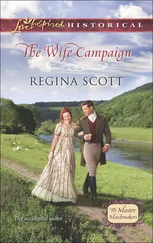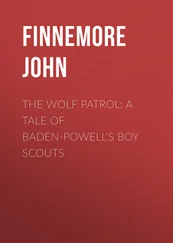Robert Baden-Powell of Gilwell - The Matabele Campaign
Здесь есть возможность читать онлайн «Robert Baden-Powell of Gilwell - The Matabele Campaign» — ознакомительный отрывок электронной книги совершенно бесплатно, а после прочтения отрывка купить полную версию. В некоторых случаях можно слушать аудио, скачать через торрент в формате fb2 и присутствует краткое содержание. Жанр: foreign_antique, foreign_prose, на английском языке. Описание произведения, (предисловие) а так же отзывы посетителей доступны на портале библиотеки ЛибКат.
- Название:The Matabele Campaign
- Автор:
- Жанр:
- Год:неизвестен
- ISBN:нет данных
- Рейтинг книги:5 / 5. Голосов: 1
-
Избранное:Добавить в избранное
- Отзывы:
-
Ваша оценка:
- 100
- 1
- 2
- 3
- 4
- 5
The Matabele Campaign: краткое содержание, описание и аннотация
Предлагаем к чтению аннотацию, описание, краткое содержание или предисловие (зависит от того, что написал сам автор книги «The Matabele Campaign»). Если вы не нашли необходимую информацию о книге — напишите в комментариях, мы постараемся отыскать её.
The Matabele Campaign — читать онлайн ознакомительный отрывок
Ниже представлен текст книги, разбитый по страницам. Система сохранения места последней прочитанной страницы, позволяет с удобством читать онлайн бесплатно книгу «The Matabele Campaign», без необходимости каждый раз заново искать на чём Вы остановились. Поставьте закладку, и сможете в любой момент перейти на страницу, на которой закончили чтение.
Интервал:
Закладка:
Our force is far too small adequately to cope with so numerous and fairly well–armed an enemy, with well–nigh impregnable strongholds to fall back on, and with his supply and transport train ample and effective – as furnished by his wives and children.
Our force, bold as it is, is far too small, and yet we cannot increase it by a man, for the simple reason that if we did, we could not find the wherewithal to feed it. There is practically no reserve of food in the country, rinderpest has suddenly destroyed the means of bringing it, and here we lie, separated from the railway by a sandy road 587 miles in length!
Nor on the spot has any adequate provision been made to meet the future wants of the small force we have. All the food–stuffs in the place have been brought together, and the commissariat organisation and system has so far amounted to showing to an officer requiring rations for his troop a pile of stores, with “There you are! Take what you want.”
One of the first steps has been to telegraph for Colonel Bridge, who had been left at Mafeking, to come and organise a system of transport and supply. Then we have to make a medical staff and an ordnance department.
In the meantime three columns are being organised, and such provision as is possible is being made for their supply for patrols of about three weeks’ duration, to the northward of Buluwayo. And we hope to start them off to–morrow.
During the brief intervals from office work for breakfast, lunch, and dinner, one has most interesting glimpses of the sunny street, crowded with throngs of “swashbucklers,” each man more picturesque than his neighbour. Cowboy hat, with puggree of the colour of his corps, short–sleeved canvas shirt, cord breeches, and puttees, with bandolier across his chest, and pistol on his hip, is approximately the kit of every man you meet. The strong brown arms and sunburnt faces, the bold and springy gait, all show them soldiers, ready–made and ripe for any kind of work. Good shots and riders, and very much at home upon the veldt, no wonder that they form a “useful” crew – especially when led, as they are, by men of their own kidney.
Among the leaders are Micky MacFarlane, erstwhile the dandy lancer, now a bearded buccaneer and good soldier all the time; Selous, the famous hunter–pioneer of Matabeleland; Napier and Spreckley, the light–hearted blade, who is nevertheless possessed of profound and business–like capacity; Beal, Laing, and Robertson, cool, level–headed Scotsmen with a military training; George Grey, “Charlie” White, and Maurice Gifford, for whom rough miners and impetuous cowboys work like well–broken hounds.
Indeed, the Volunteer troops seem to have thoroughly adapted themselves to the routine of soldiering, as well as to the more exciting demands of the field of action.
Night guards, daily standing to arms before sunrise, patrols, and other uncongenial duties are all carried out with greatest regularity; but the following amusing account of a morning patrol – which appeared in the Matabele Times this week – shows some of the drawbacks under which they carry on their work: —
“Standing to arms at 4 a. m. is not in itself a joy, but its cruelty is accentuated when the troop orderly takes that opportunity of informing you that you are to leave the laager at 5.30 and go on patrol to Matabele Wilson’s, in company of three other unfortunates, for the purpose of ascertaining whether the road be clear travelling.
“On the occasion of which I write this was my fate, and our little party, with noses that needed constant attention with a handkerchief, and numbed fingers clasping cold rifles, stood shivering outside the stable gates, viewing life despondently and swearing at the remount staff. All things, pleasant and otherwise, have an end, and at last, in response to frequent knocks, the gate opened, and we followed a depressed–looking official to where four alleged horses, with drooping heads and downcast mien, disconsolately champed the half–ton of rusty iron which South Africans call a bit, and dreamed of oats. Each man chose a horse, and with the assistance of sundry stable–boys induced him to leave his empty manger and move wearily out into the street. Here great care was necessary in mounting, as it was yet to be ascertained whether the crocks could stand up straight under the weight of a rider, but at last we fell in, and by dint of spur and rein reached the laager.
“The corporal in charge of the patrol then went to wake up the orderly officer and get his orders, and my horse edged sideways towards the windmill; he wanted something to lean against. By and by out comes the corporal, we awakened our mounts, and started. ‘Our orders are to go out to Wilson’s and meet a patrol from the Khami River, then return to town,’ and ‘You’re not to gallop all the way,’ added the corporal. We at once said we wouldn’t, and just then one of the horses fell down in endeavouring to step over a gutter. We dismounted and put the turn–out on its feet again, and proceeded.
“Just past the Dutch laager some one said, ‘By Jove, the laager smells peculiar.’ Another man said, ‘Yes; the big laager is just the same.’ We passed a bush and struck the source of the odour, a dead ox; and promptly apologised to the laagers.
“All went well for a mile or so, and the corporal says, ‘Let’s have a trot.’ We rammed in the spurs and shook the reins; one horse started a feeble lolloping trot which he maintained for at least twenty yards before he fell down; two horses shook their heads and whisked their tails, but took no further notice of the appeal for more speed; and the fourth, a grey, with fine prominent points, stopped dead short. We all passed a few remarks about the gentlemen who had selected the horses for duty, and resumed our wonted ‘crawl march.’
“More rinderpest, and my horse made a movement as if to lean against the smell, but it was too strong for him, and he moved on, to prevent being knocked over. On passing dead horses and cattle we used to draw in a long breath and endeavour to spur up a trot that would carry us out of range, before we were again compelled to breathe or ‘bust,’ but our horses used generally to land us in the middle of the stink and then pull up. You would see a man get black in the face trying to hold his breath, and at last have to burst out and refill his lungs with the very richest of the odour.
“Passing the remains of the kraal where the transport riders, Potgieter and his mate, were murdered, we saw the heaps of earth piled over the victims’ bodies. Here one of our number dismounted to light his pipe. This was the last we saw of him; he never caught up, though we only walked our horses; and he finally rolled up at the fort, half an hour after we had arrived, on foot, having tied his horse on to a tree. He said he found it considerably easier walking. Dawson’s Fort is splendidly placed, and commands a fine view of the surrounding country; the walls are built up with stone topped with two courses of sandbags, shelter for the garrison being afforded by sails; permanent running water passes the foot of the hill.
“A number of donkey waggons were outspanned on the road beneath the fort, and out by Wilson’s house, where now a hotel flourishes with the success usual in Matabeleland, we could see the coolies working in the gardens, planting to renew the crops of vegetables reaped with zeal and thoroughness by troops and travellers evidently determined that the enemy shouldn’t have them any way. Rinderpest is very much in evidence round the fort, and oxen lie dead literally in troops, long regular lines of carcasses lying together.
“At the foot of the hill leading to the fort one of the horses gave out altogether, having clean knocked up in five miles of travelling, the whole of which was done at a walking pace.
Читать дальшеИнтервал:
Закладка:
Похожие книги на «The Matabele Campaign»
Представляем Вашему вниманию похожие книги на «The Matabele Campaign» списком для выбора. Мы отобрали схожую по названию и смыслу литературу в надежде предоставить читателям больше вариантов отыскать новые, интересные, ещё непрочитанные произведения.
Обсуждение, отзывы о книге «The Matabele Campaign» и просто собственные мнения читателей. Оставьте ваши комментарии, напишите, что Вы думаете о произведении, его смысле или главных героях. Укажите что конкретно понравилось, а что нет, и почему Вы так считаете.












